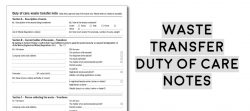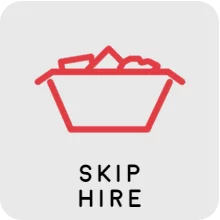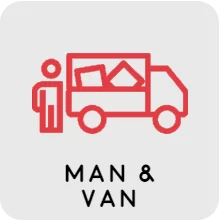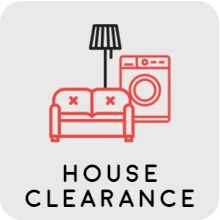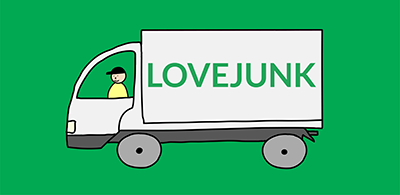How To: Regulation & Best Practise for Contractors Removing Waste from Customer Sites
When contractors carry out work at a customer’s property, they often create waste that needs to be disposed of. A simple alternative to hiring a skip or using a man & van waste collection company – particularly for smaller amounts of waste – is to put it in your own van and take it to a tip or back to a skip at your depot. Here is our summary of the legal requirements and suggested best practice for contractors taking waste from customer sites.
-
Waste carrier license
Anyone who takes waste (regardless of whether they created it) from a client’s site needs to have a waste carrier license from the Environment Agency. Removing waste for customers without a license is illegal and the penalties include fines of up to £5,000.
There are two types of waste carrier license – lower tier and upper tier. Registration as a Lower Tier carrier is appropriate if you are only removing your own waste and it is not construction and demolition waste. For example, a carpet fitter or plumber removing their off-cuts of new carpet or new pipes from a customer’s home. Upper tier is the most common and is for anyone removing other people’s waste and/or construction and demolition waste. Construction and demolition waste is described by the Environment Agency as “typically including soil, concrete, bricks, glass, wood, plasterboard, asbestos, metal and plastic and …produced as part of a large construction project or a smaller business activity, like a general builder replacing a bathroom, or a gardener replacing fence panels and paving slabs”. So, carpet fitters removing customer’s old carpet, plumbers removing an old boiler, and a kitchen installer removing an old kitchen all require an Upper tier license.
-
Insurance
As a business, you will need to be insured to transport waste in your vehicle. Standard commercial vehicle insurance does not cover waste removal and including it as a permitted activity increases the premium, so it’s not unusual for contractors to sometimes ‘forget’ to amend their policies. But obviously not having the correct insurance in place can have considerable implications if things go wrong.
-
Documentary record of the Waste Transfer
Waste transferred from one trade party to another must be recorded in writing and that record kept for 2 years by both parties. Until a few years ago, that written record had to be in the form of a Waste Transfer Note (WTN). However, to make life easier, the law now also allows you to use any document (including an invoice or bill of sale) provided it contains the following items:
- Address, date and time of the transfer;
- Names, addresses and signatures of both parties and their role (e.g. producer, carrier);
- Description of the waste – which must include the relevant European Waste Catalogue codes, an indication of quantity and/or weight, whether it is loose or contained, and a statement confirming that the transferor has fulfilled their duty to apply the waste hierarchy set out by regulation 12 of the Waste (England and Wales) Regulations 2011 – which basically references the need to try to reuse or at least recycle before disposing
- SIC code of the person transferring the waste
Slightly confusingly the obligation to document the waste transfer does NOT apply when household waste is being removed from a domestic property. Although householders have a duty to ensure their waste is disposed of properly (typically by checking the collector is a licensed waste carrier), they are not required to keep evidence of that transfer in writing. Hence, a contractor removing waste from a domestic premise for a householder does not strictly speaking need to provide them with a waste transfer note or keep a copy for yourself. Nevertheless, it is still good practice to do so and at the very least will provide your customers with reassurance of your professionalism.
-
Special rules for Fridges
Fridges and freezers have special rules because they contain hazardous gases. It’s fine for them to be removed from domestic premises along with more general waste, but they can only be taken to facilities that are licensed to handle hazardous waste electrical equipment (WEEE). In addition, if a fridge, freezer or chiller cabinet is removed from a commercial premise, that transfer must be recorded using a Hazardous Waste Consignment Note –a special type of waste transfer documentation which also requires additional fees. Further guidance on handling hazardous WEEEis available at the EA website.
-
Disposal or Temporary Storage
Once a tradesman has loaded up the waste from a customer’s property, they can:
- take it directly to a licensed commercial disposal facility – where, once they’ve offloaded it, they will receive a tipping receipt recording the disposal (itself a documentary record of the disposal from the waste carrier contractor to the waste management company running the disposal site); or
- bring it back to their depot (or another site under their control) to be temporarily stored and at later date collected by a waste company or taken on for disposal elsewhere. Such temporary storage of waste is allowed under Environment Agency exemption Non-Waste Framework Directive 3. However, this exemption is subject to a number of restrictions. In particular, the waste must have been produced from work you have carried out at a customer’s site (rather than their general waste). In addition, the waste must be stored securely, should exclude particularly flammable and combustible materials and unbonded asbestos, and must never exceed 50 cubic metres in volume. The exemption was created by the EA specifically to help builders and other tradesmen dispose of their works waste efficiently. It does not allow you to run an unlicensed transfer station for third-party waste – an activity that requires a lengthy and expensive permit process from the EA, extensive planning consents and a host of practical and regulatory health and safety controls.
Examples
Tony is a heating engineer contractor. He carries out a boiler replacement for a domestic client which includes replacing a leaking downpipe. The waste from the job comprises the old boiler, the packaging for the new boiler, and the offcuts of the new downpipe. He takes all of it in his own vehicle to a commercial disposal facility (the ‘trade’ section of his local CA site which charges business to get rid of trade waste)
Paper trail
Tony does not need to create a waste transfer note (or equivalent) to cover the transfer of the waste from the customer to him, because they are a householder. However, it would good practise to do so. Note, assuming he brought the boiler and downpipe to the premises, the only waste transferred is the old boiler since the packaging and offcuts were already in his possession.
Tony should receive a tipping receipt from the disposal facility documenting his disposal. This is a waste transfer note and he should keep it for 2 years
Licenses
Tony needs to have an Upper Tier waste carriers license to move 3rd party waste
Insurance
Tony’s vehicle insurance should specifically cover moving waste for clients.
Frankie and his team are replacing a communal kitchen area for an office. Waste from the job comprises the old kitchen units, flooring, and appliances (including the fridge), the packaging and offcuts of the new kitchen and flooring and appliances (all of which was delivered by 3rd parties). During the job, he uses a skip located outside the customer’s property to dispose of the waste, but sometimes when the skip is full and waiting to be replaced, his team puts waste in a bulk bag and drives it back to their depot. They separate the waste into two large skips at the depot that are replaced once full. One of the skips is for wood and chipboard and the other for mixed waste. They have two skips because they pay less for the wood skip.
Paper trail
Frankie should receive waste transfer notes from the skip company for each skip collected from the customer’s site and also whenever a skip is replaced at his depot.
Because it is a commercial client, Frankie should create waste transfer notes (or equivalent) each time his team removes waste from the client site. He should give a copy of the WTN to the client and keep a copy for himself.
When the fridge is removed, that transfer should be documented by a hazardous waste consignment note because it is a fridge being taken from a commercial premise.
Licenses
Frankie’s business must have an Upper Tier waste carriers license.
Using the two skips at his depot is covered by Non-Waste Framework Directive 3.
Insurance
Frankie’s vehicle insurance should specifically cover moving waste for clients.
Other useful articles & guides
- 5 questions to ask your waste contractor
- what is a waste transfer note
- what to do with a waste transfer note
- how to dispose of empty containers of hazardous waste
- who needs a waste carrier license
- example waste transfer note
Need Practical Help?
This article was written by AnyJunk, the on-demand bulky waste collection company. For more information visit www.anyjunk.co.uk or contact our commercial enquiries team.
Our small print
AnyJunk is not a firm of solicitors, consultant or public authority – we are a rubbish clearance company. This guidance is designed to be a pragmatic summary for the majority of users and we have not included a multitude of additional rules, caveats and exemptions that may be relevant to your specific situation. If you require more detailed information or a definitive view on the rules and regulations governing waste, we recommend seeking independent legal advice or, at the very least, contacting the Environment Agency for a proper chat. In other words, please don’t sue us; we’re only trying to help!







